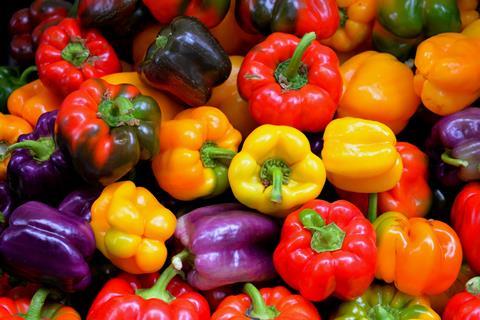Fruit and vegetable exports increase in volume and value through January-July, while the country also imports more fresh produce
Spanish fresh fruit and vegetable exports increased in both volume and value through the opening seven months of the year, according to the latest data from the Department of Customs and Excise, processed by Fepex.

Export volume for the January-July period came in 9 per cent higher than the same period of 2023 at 7.6m tonnes, with value up 3 per cent to €11.21bn.
Vegetable exports totalled 3.6m tonnes, up 9 per cent, and €5.1bn in value, which represented a slight decline of 1 per cent.
By category, peppers led the way with 512,837 tonnes exported, growth of 15 per cent, at a value of €1bn euros.
Some 468,144 tonnes of tomatoes were shipped, with volume climbing 19 per cent and value down 10 per cent to €725m, with lettuce exports up 4 per cent to 464,501 tonnes but falling 5 per cent in value to €563m.
Fruit exports amounted to 4m tonnes, meaning a 9 per cent rise in volumes, with value also boosted by 7 per cent to €6.11bn.
The demand for Spanish berries was particularly high through the seven-month period. Strawberry export volumes came in at 251,072 tonnes, up 4 per cent, and €767m in value, soaring 13 per cent year-on-year.
Similarly, blueberry exports jumped 20 per cent to 82,971 tonnes at a value of €527m, growth of 15 per cent..
Fepex pointed to the positive performance of stonefruit, such as nectarines, peaches and cherries, with all three products seeing growth in export volume and value.
Imports
The country also saw 10 per cent growth in fresh produce import value during January-July, totalling €2.91bn, while import volume increased slightly by 0.4 per cent to 2.4m tonnes.
The average import price for fresh fruit and vegetables increased by 9 per cent through the period, the Department of Customs and Special Taxes revealed.
Vegetable imports grew 8 per cent in volume and 15 per cent in value, totalling 1.2m tonnes and €935m respectively.
This was driven largely by potatoes, with imports climbing 8.5 per cent in volume and 17 per cent in value, totalling 723,218 tonnes and €344m respectively.
Fepex said that the increase in tomato imports was also noteworthy, at 81,879 tonnes in volume (up 6 per cent) and €104m in value (up 4 per c ent).
On the fruit side, Spain’s import market actually fell 6 per cent in volume, to 1.3m tonnes, but grew 7 per cent in value to €1.97m.
Bananas, avocados, oranges and apples were the most imported fruits in January-July, but only the avocado category saw year-on-year growth, with 146,846 tonnes (up 4 per cent) imported at a value of €345m (up 13 per cent).



